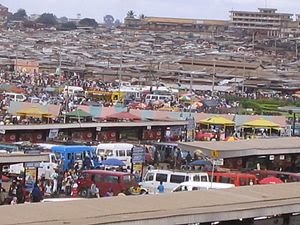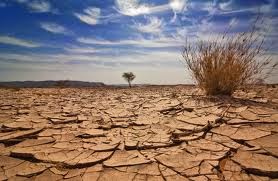Governments,
businesses, investors and others are embracing the ‘green economy’ idea, but
differences in the way they interpret it pose barriers to sustainable
development.
This
is according to a report published by the International Institute for
Environment and Development (IIED) and the Green Economy Coalition.
“The
green economy concept is an antidote to the prevailing brown economy, which is
a major driver of environmental degradation and inequality,” says Oliver
Greenfield Convenor of the Green Economy Coalition. “Its purpose is to improve
both society and the natural environment. Right now though, the most powerful
players are backing a narrower goal of ‘green growth’, which risks being discredited
unless it more effectively tackles inequality.”
The
report outlines ways to bridge this and other gaps that could jeopardise the
transition towards inclusive, sustainable development.
Who are the
players?
While
the United States and most Latin American countries have not pursued the green
economy or green growth concepts, many other nations have. They include: China,
Denmark, Ethiopia, Indonesia, Mauritius, Mexico, Morocco, Peru, Vietnam,
Philippines, South Africa, South Korea, Thailand, Rwanda and the Caribbean
region.
Other
emerging leaders include research institutes, civil society organizations,
consultancy firms (such as McKinsey and PWC), the ‘B Team’ group of business
leaders, investors, development banks and bilateral donors.
What are they
doing?
Development
banks are providing billions of dollars to support green growth and encourage
private sector investment, whilst countries – rich and poor – are developing
national green economy strategies and legislation.
Companies
and international institutions such as the World Bank and UN agencies are also developing
ways to measure the social and environmental performance of economies, with
metrics that go beyond tradition GDP and shareholder value.
New
‘green financial products’ — such as green insurance bonds — have also come
onto the market. Some of the world’s largest investment banks have drafted
voluntary guidelines for the development and issuance of green bonds.
 While
the players are beginning to align their views and activities, there are
important gaps.
While
the players are beginning to align their views and activities, there are
important gaps.
A question of
equity
Although
governments and international institutions have stressed the benefits of
‘inclusive green growth’ for poor people, they have ignored the emerging crisis
of rising inequality – which is undermining our economies and our political
systems. The nascent global and national architecture for a green economy is
ill equipped for delivering more equitable outcomes.
“The
challenge is to marry a broad concept of green with equity and inclusion,
creating growth at all levels of the economy and ensuring that everyone shares
in the benefits” says lead-author Emily Benson. But while the gap between
“green economy” and “green growth” has narrowed, it still poses challenges.
Most
‘green growth’ models still envisage that welfare gains will trickle down
through existing channel, rather than resulting from progressive economic and
social policy.
“In
contrast to green growth, which has focused on attracting investment, green
economy targets wider and deeper reform to create an economic system that
better serves society,” says Steve Bass, head of IIED’s sustainable markets
group. “A green economy should start where the majority of people are, tackling
poverty and helping them to develop their assets and meet their needs and
aspirations. So it should actively include the informal economy, small and medium
enterprises, and locally owned and run solutions — not just big business.”
As
the brown economy stumbles out of recession, the opportunity of ‘green growth’
is bringing ministries of finance, development banks, businesses, and the
capital markets to the table for the first time. But the narrow project of
‘green growth’ alone cannot cope with today’s global environmental challenges
or respond to societal needs.
 Issues
of equity and ecological limits must start to shape the emerging architecture
for greener economies. For that to happen, the transition needs to be defined,
managed and owned by people and their communities.
Issues
of equity and ecological limits must start to shape the emerging architecture
for greener economies. For that to happen, the transition needs to be defined,
managed and owned by people and their communities.
At a human level: Transforming our
economies will only become politically feasible when we are able to connect the
opportunities of a green economy to people’s lives. In short, that means better
jobs, health, energy, food, education, housing, being able to afford old age,
not being flooded (etc.).
At a country level:
Scale
up in-country dialogue and accords, emphasising equity, learning, shared
commitment between stakeholders. Our current economic system has been framed
and governed by elites, corporations and external bodies. National dialogues
need to recognise country specificities including power, location and time. They
also need to help stakeholders bridge opposing ‘world views’ and explore facets
of the systemic change required.
At a global level: Connect global
policy goals across the transition. This requires connecting the financial
system reform agenda to the goals of a green economy; accelerating ‘circular
economy’ policies to transform our sectors; scaling up natural resource
management strategies in economic planning (via natural capital valuation,
certified resource management, and payment for ecosystem services tools); and
redefining our indicators of success to account for ecological limits and
equity.
Build
on the international regimes that actively manage both global and public goods
and global risks. Powerful countries and players have ‘externalised’ social and
environmental issues, which have now accumulated and interacted so much that
they form major systemic risks to the world economy. Economic governance must
now evolve, more rapidly and strategically, to manage the global economy within
planetary boundaries and social and environmental risks.
 Foreign
and international relations on green economy need to extend beyond ODA and
global initiatives. Issues such as trade reform, subsidies, technology
transfer, tax co-operation, financial system reform, investment transparency
need to be considered alongside and within green economy approaches.
Foreign
and international relations on green economy need to extend beyond ODA and
global initiatives. Issues such as trade reform, subsidies, technology
transfer, tax co-operation, financial system reform, investment transparency
need to be considered alongside and within green economy approaches.
Green
economy goals, indicators and metrics, including the post-15 framework, should
track progress towards economic reform. Measuring economic reform needs to be
relevant to metrics at global (post-2015), national (beyond GDP), corporate
(triple bottom line), and local. This is not just a technical task; a process
is needed to share and reframe world views about what matters to people.
 Over
the last seven years, AGRA has spent $40million in support of agricultural
development in Ghana and is looking at spending $65million from 2014-2020.
Over
the last seven years, AGRA has spent $40million in support of agricultural
development in Ghana and is looking at spending $65million from 2014-2020. AGRA
sees itself in a position of high comparative advantage to support release of
variety release and delivery systems, strengthen soil fertility management and
input system, strengthen grain value chains for improved market access and engage
in innovative financing for farmers to access, said the Country Head.
AGRA
sees itself in a position of high comparative advantage to support release of
variety release and delivery systems, strengthen soil fertility management and
input system, strengthen grain value chains for improved market access and engage
in innovative financing for farmers to access, said the Country Head.


.JPG)














































